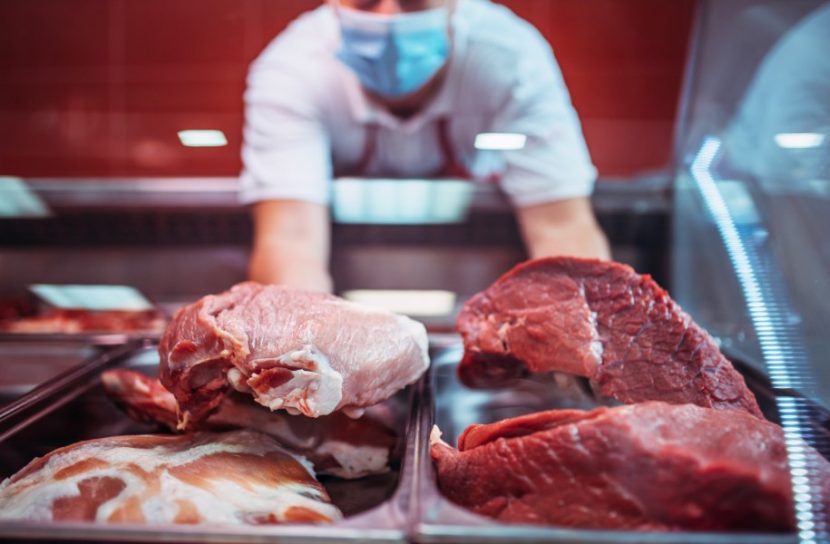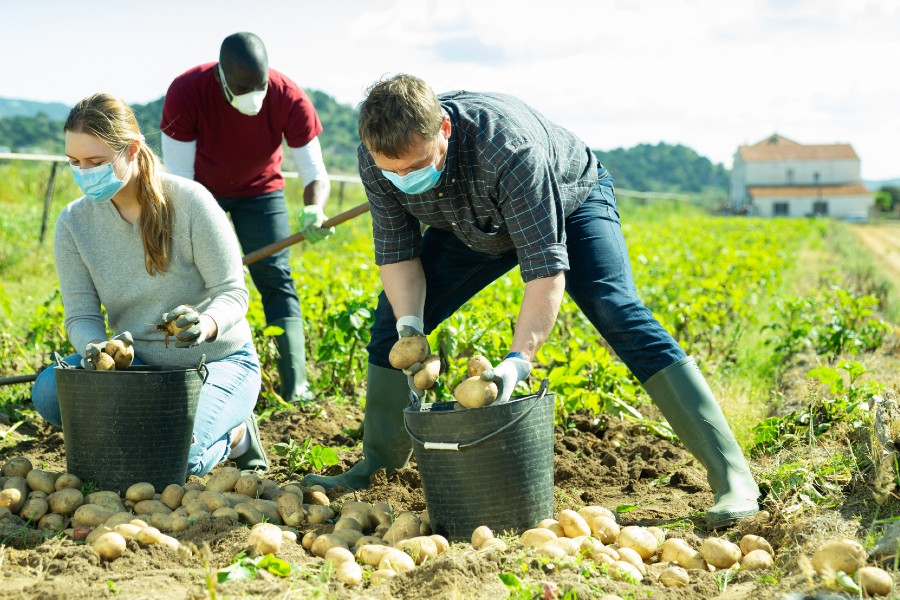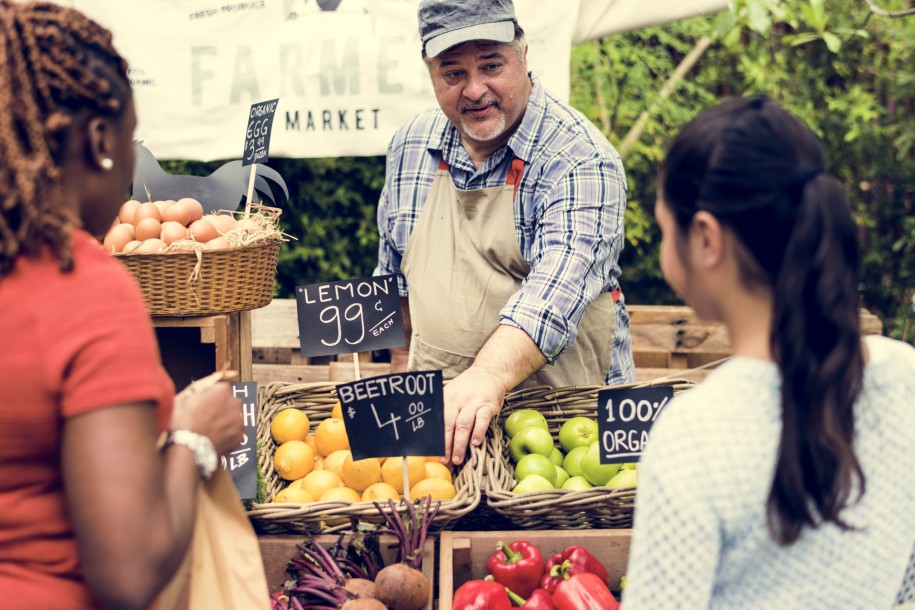New Reforms Needed for Essential Food Workers – Part II
By Susie Hoeller and Ben Theyerl
In the first part of this two-part series, we focused on the need for new laws to define essential food workers in light of the on-going COVID-19 global pandemic. In part two, we will cover the practical recommendations we believe governments, companies and citizens should be implementing and lobbying for in order to protect the integrity of our food systems and the people who work within it.
Assessing the Damage
It is clear from media, NGO and government reports that over 30,000 meat packing workers and countless field workers have fallen seriously ill and many have died from COVID-19 in recent weeks. This type of suffering could be avoided if working and housing conditions were significantly improved as a result of protective legislation, ethical business practices and more consumers acting in solidarity with the people who put food on their tables.
Practical Recommendations
Hazard Pay: We believe that a simple way to protect essential food workers is for Congress to pass legislation requiring hazard-pay whenever people risk their lives and health to work to supply food – just like there is overtime pay under the Fair Labor Standards Act. Congress needs to pass an “Essential Food Workers Hazard Pay Act” so that whenever and wherever a public health emergency is declared, any workers impacted would receive meaningful hazard pay. Small producers should receive government subsidies to make these payments – just like with the recent U.S. government’s Paycheck Protection Plan.
The pandemic is far from over and the risk to the food supply remains.
Legalize Undocumented Food Workers: Americans and others living in industrialized countries would not have enough to eat without the contribution of undocumented workers who work in harsh conditions for low pay in our global food supply chain. They need to receive legal status and not be under the constant risk of deportation. Their insecure status does not allow them to speak up if there are unsafe conditions in their workplaces and enforcement raids at food production facilities which disrupt the production process.
Collective Bargaining: It is no secret that businesses prefer non-union workforces since “right to work” legislation allows companies to pay people less and lay them off easily. Unions are seen to restrict the operational flexibility and profitability of companies and some unions have been tainted with corruption. However, many workers in American fields and meat packing plants are immigrants, from countries with limited English proficiency. This can create environments in which employers are able to pay the minimum and/or provide unsafe working conditions, like we have seen with the COVID-19 outbreaks in meat plants and in farmers’ fields, as their employees may not understand the full extent of their rights or feel confident advocating for their rights. Labor law should be changed to facilitate collective bargaining access for these workers. In any event, ethical companies which treat their workers fairly and humanely don’t have to fear union organizers.
Other Protections: Senator Elizabeth Warren has introduced an Essential Workers Bill of Rights. Profitable public companies in the food business should adopt its provisions for worker safety protections, living wages, sick and family leave, health care, childcare and worker participation in corporate governance. After all, taxpayers heavily subsidize the giant producers of corn, soybeans, pork and poultry.
Of course, there are thousands of small producers operating with tight margins in the food industry. Many companies simply cannot afford to provide all the benefits that are needed for our essential food workers. But there are ways, and a responsibility, to assist these small companies with tax breaks and targeted subsidies which would enable these companies to improve the safety, working conditions and compensation for their workers.
At the time of this article, the U.S., unlike Canada, has not flattened the COVID-19 curve. Cases and deaths are skyrocketing in many states. The pandemic is far from over and the risk for the food supply remains. Further, food safety cannot be assured when the workers processing the food are sick and ill-treated.
All Americans need to lobby their federal and state representatives to enact new protections for the essential workers in our food supply – not just for a contagious disease but for any type of emergency. These people need to have much better workplace safety precautions as well as wages and benefits. Would this make food more expensive? Yes, it would. But this could be dealt with by improving the SNAP food stamp program for lower income Americans. Middle class and wealthy Americans can afford to pay a little more for their food instead of facing the prospect of not having it at all.
It is time for America to finally take care of our essential food workers!
About the Authors:
Susie Hoeller is an international business attorney currently based in Tampa, Florida. She counsels companies, including food companies on regulatory compliance and negotiates contracts and intellectual property licenses. Ms. Hoeller was raised in Montreal, Quebec. She is a graduate of Colby College and Vanderbilt Law School and holds law licenses in five states. For more information: see, www.hoellerlaw.com.
Ben Theyerl is a 2020 graduate of Colby College in Waterville, Maine where he majored in English and Educational Studies with a minor in Environmental Studies. Ben is a native of Eau Claire, Wisconsin and a Nordic ski racer.

-
 FeaturedRisk management
The Cost of a Breach: What a Cyberattack Could Mean for Food Safety Recalls
FeaturedRisk management
The Cost of a Breach: What a Cyberattack Could Mean for Food Safety Recalls
-
 FeaturedRisk management
Securing the Food Chain: How ISO/IEC 27001 Strengthens Cybersecurity
FeaturedRisk management
Securing the Food Chain: How ISO/IEC 27001 Strengthens Cybersecurity
-
 FeaturedRisk management
Revolutionizing Food Safety Training: Breaking Out of the “Check-the-Box” Mentality
FeaturedRisk management
Revolutionizing Food Safety Training: Breaking Out of the “Check-the-Box” Mentality
-
 GFSI Standards
GFSI 2025: Building Trust, Tech-Forward Solutions, and Global Unity in Food Safety
GFSI Standards
GFSI 2025: Building Trust, Tech-Forward Solutions, and Global Unity in Food Safety
-
 FeaturedFood Safety
Integrated Pest Management: Strategies to Protect Your Brand’s Reputation
FeaturedFood Safety
Integrated Pest Management: Strategies to Protect Your Brand’s Reputation
-
 FeaturedFood Safety Culture & Training
No Open Door Policy: Challenges That Impact Pest Control in Food Processing Plants
FeaturedFood Safety Culture & Training
No Open Door Policy: Challenges That Impact Pest Control in Food Processing Plants




